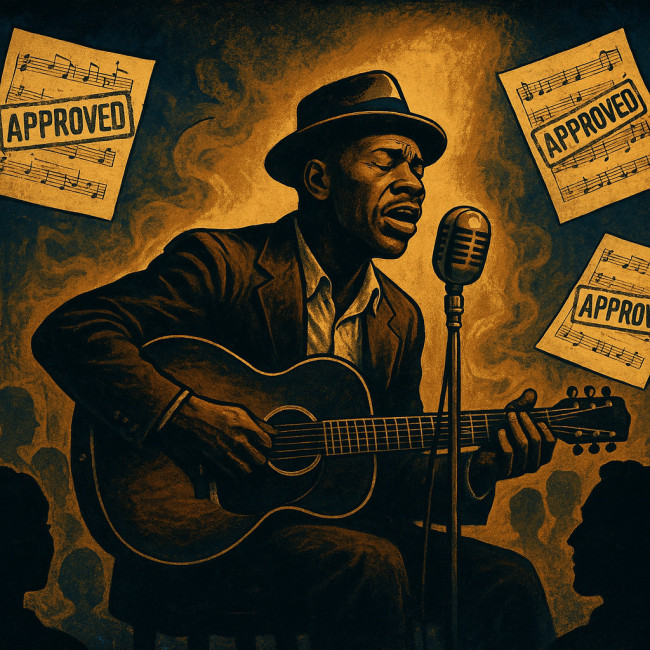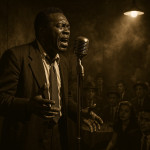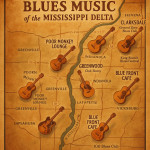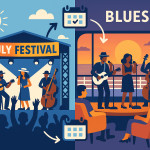Licensing classic blues covers: legal shortcuts for smooth gig approval
Covering B.B. King, Muddy Waters or Etta James in a bar, festival or cruise lounge seems simple—until a venue manager asks, “Do you have the rights?” This guide walks you through fast, affordable ways to secure licensing for classic blues covers, so your next gig is approved without legal roadblocks.
Why licensing classic blues covers matters (even for small stages)

The classics you love are usually under copyright. When you perform them live, you trigger three separate rights—public performance, mechanical reproduction (if you stream or record), and sync (if a video is involved). Skipping clearance risks takedowns, withheld payments, or refusal of future bookings. That's why even a humble open-mic slot or late-night cruise-ship lounge needs the same diligence as a festival main stage. Think of licensing as a backstage pass for your setlist: without it, the door stays shut, no matter how tight your groove or how passionate your vocals. Clubs, promoters and streaming platforms rely on proof of clearance to process payments, pay songwriters and keep their own reputations intact. Get it wrong and you'll find yourself black-listed faster than you can say “Stormy Monday.”
The three-minute compliance checklist
- Confirm the song isn't public domain (most pre-1925 blues only).
- Identify the publisher via ASCAP, BMI or SESAC databases.
- Choose the fastest licensing route below and file before advertising the show.
Four legal shortcuts that save rehearsal time
Below is a side-by-side view of the quickest methods blues singers use today.
| Shortcut | Best for | Average turnaround | Typical cost (USD) | Gig scenario example |
|---|---|---|---|---|
| Venue's PRO blanket licence | Live bars & clubs | Instant (already held) | Included in venue fee | Friday night set at a 150-seat club |
| Online cover licence service (e.g., Easy Song Licensing) | Livestreams & recordings | 2-5 business days | $16–$30 per song | YouTube upload of your gig |
| Harry Fox Agency (Songfile) | EP releases, merch bundles | 48 h | 9.1¢ per copy × copies | Limited CD run sold at shows |
| Direct publisher email | Rare catalogues | 1–3 weeks | Negotiated | Obscure John Lee Hooker B-side |
| Public domain check | Pre-1925 blues titles | None required | Free | “St. Louis Blues” (1914) |
Step-by-step: securing a licence in under a week
1. Capture your setlist early
Lock your repertoire (ideally two weeks out). Need inspiration? Our guide on curating a signature blues repertoire helps you choose crowd-pleasers that are also simple to license.
2. Audit the venue's existing coverage
Most commercial venues already pay ASCAP, BMI or SESAC blanket fees. Ask for written confirmation. If provided, you can perform classic blues covers live without extra paperwork.
3. Fill gaps with an online mechanical licence
If you plan to post recordings or livestreams, use Easy Song Licensing or Harry Fox Songfile. Upload the track list, pay online, and receive a PDF licence—often within 48 h.
4. Keep proofs handy
Store licences in a cloud folder shared with booking agents. Fast retrieval speeds up showreel production and avoids last-minute cancellations.
Common pitfalls—and the fixes
- Medley confusion : A medley counts as multiple songs. License each segment or switch to full-public-domain transitions.
- Changing keys : Transposition is allowed. However, altering lyrics triggers a derivative-work request—get publisher consent.
- International gigs : Foreign PROs may differ. Check reciprocal agreements before your European blues cruise booking.
- Band member uploads : Make sure all musicians know not to post unlicensed footage on personal channels.
Timeline planner: from enquiry to stage day
- 4 weeks out – Confirm setlist, run public-domain check.
- 3 weeks – Request venue's PRO certificate.
- 2 weeks – File mechanical licences; order backing tracks.
- 1 week – Receive PDF approvals; forward to promoter.
- Show day – Keep digital copies on phone plus a printed set in your gig binder.
Money-saving hacks for touring blues singers
Licensing fees can eat into club-level budgets. These tactics keep margins healthy:
- Rotate public-domain songs into each set to reduce paid licences by 20–30 %.
- Batch licences every quarter; bulk processing lowers admin fees.
- Share costs on duo or trio bills: split per-song fees proportionally.
- Match demand cycles: our article on seasonal demand cycles explains how higher-paying slots offset licensing spend.
Performance rights vs. mechanical rights—decoding the jargon
Think of performance rights as “permission to sing in public” and mechanical rights as “permission to fix the song onto a medium.” Live gigs usually need only the first, provided the venue's licence is active. Any recording—streamed, filmed or sold—adds the second.
Live-streaming bonus: avoid geo-blocking
Facebook, YouTube and Twitch scan uploads for copyrighted material. A mechanical licence alone may not prevent muting. Use their pre-clearance portals and add your licence number in the dispute form for faster reinstatement.
Leverage directories to book more compliant gigs
Promoters increasingly sort blues talent by compliance tags. Optimise your blues singer directory profile by mentioning “fully licensed for classic covers” in the bio. Data shows profiles with licensing badges land on faster talent-manager shortlists.
Quiz: Test your blues licensing IQ
FAQ
- Can I sell a live album of classic blues covers after the gig?
- Yes, but you must secure mechanical licences for each track before duplication or digital distribution.
- What if the venue's licence is with BMI but the composer is ASCAP?
- PROs have reciprocal agreements. The venue's BMI licence covers ASCAP-represented songs for live performance.
- Are instrumental blues covers exempt from licensing?
- No. Melody ownership still applies, so performance and mechanical rights remain necessary.
- How do cruise ships handle licensing?
- Larger lines maintain international PRO agreements. Always request written proof before boarding.
- Does Spotify allow unlicensed cover uploads?
- Spotify requires a mechanical licence. Aggregators like DistroKid often automate this but charge a fee.
Next steps: lock in compliant gigs, faster
Update your setlist, run the licence checklist, and highlight “fully cleared classic blues covers” in your pitches. Need pricing guidance for upcoming festival season? Dive into our pricing blueprint and start negotiating with confidence.
Ready to perform without red tape? Add a “licensed classic covers” badge to your profile, send your organiser the PDF proofs, and focus on what matters: playing soul-stirring blues that earns repeat bookings.











